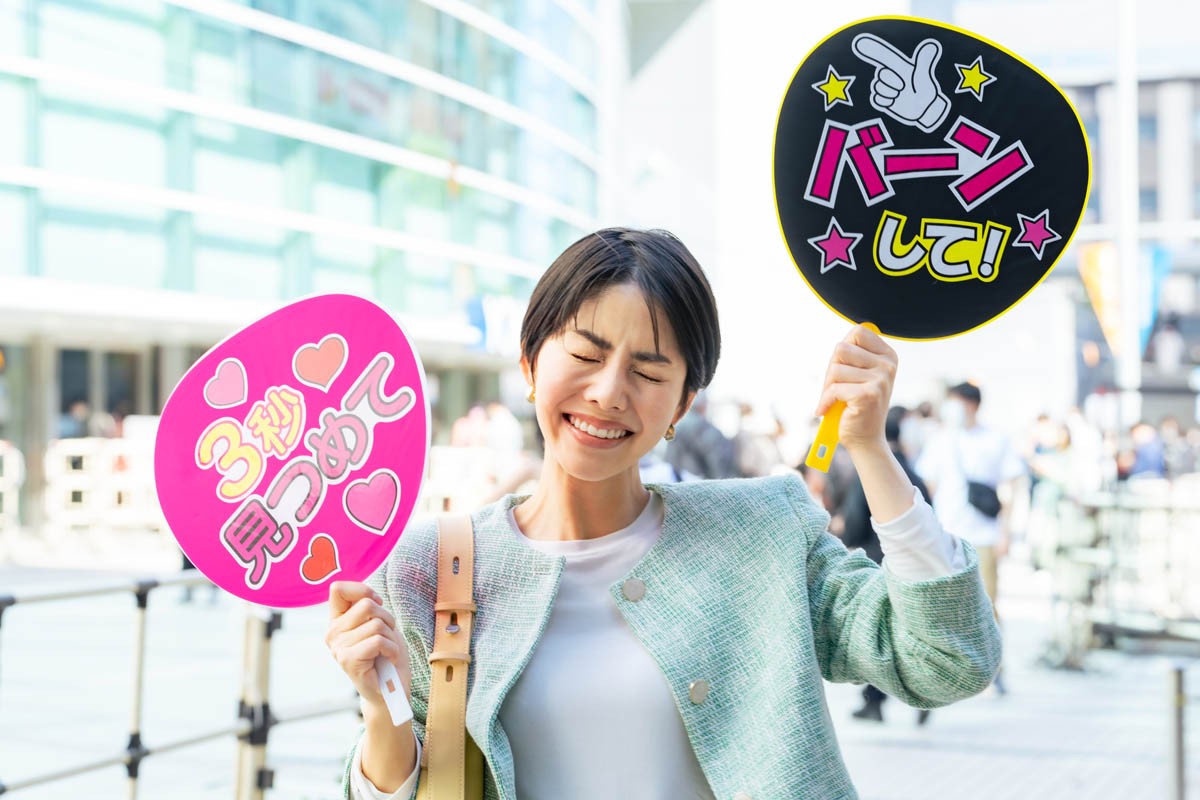
Japanese idol culture is a unique form of entertainment that has gained attention from fans all over the world. In addition to mainstream idols who appear on TV and perform at large venues, there are also underground idols who perform in small live houses, junior idols who start out as child actors or young models, and many other different styles. This article will explain everything from the structure of Japan’s idol industry, to the differences between major and underground idols, and even how Japanese idols differ from those in Korea and other countries!
*By purchasing or reserving products introduced in this article, a portion of the sales may be returned to FUN! JAPAN.
What Is an Idol? The Concept of Idol Culture in Japan

According to the Oxford English Dictionary, an idol is "a person who is greatly admired, loved, or revered, especially someone like an actor, athlete, or musician with a passionate fanbase."
In Japan, the word "idol" is derived from the English "Idol" and refers to individuals active in the entertainment industry—such as music, movies, and TV—who are loved and supported by many for their charm and talent. However, Japanese idol culture has developed in a way that's quite different from how idols are seen overseas. In particular, Japanese idols are often viewed as "people who grow together with their fans." Instead of being perfect from the start, their appeal lies in showing their journey of effort and growth.
While overseas idol scenes tend to emphasize a high level of polish and completion, Japanese idol fans are drawn to the "story" of the idol. Fans connect with the struggles, efforts, and development of the idol, and feel like they’re walking the same path together, supporting their dreams. This emotional connection to the "idol's story" is a major defining trait of Japan’s unique idol culture.
🛒Purchase idol-related goods and fan merch [Yahoo! Shopping]
🛒Purchase idol CDs/DVDs [Yahoo! Shopping]
What Are Underground and Major Idols? A Guide to the Different Types of Japanese Idols
Japanese idols are categorized in various ways depending on the scale of their activities and the type of work they do. Here, we'll introduce the different types of idols based on two perspectives: "scale of activity" and "type of activity (genre)."
The Difference Between Underground and Major Idols: Categorization by Scale
Major Idols (Mainstream)

Major idols are those who belong to large talent agencies, release works through major record labels, and perform on TV shows or at large live events nationwide. Because their CDs and DVDs are sold across Japan and they frequently appear on music programs, they tend to be well-known. They can attract a wide range of fans through national tours and frequent media exposure. Representative examples include Hello! Project, AKB groups, and STARTO ENTERTAINMENT (formerly Johnny & Associates) groups.
🛒Purchase Nogizaka46 CDs/DVDs [Yahoo! Shopping]
🛒Purchase Hello! Project CDs/DVDs [Yahoo! Shopping]
Underground Idols (Indie)

Underground idols are those who appear less often in the media and mainly perform at small-scale live houses. They're also referred to as indie idols who haven’t made their major debut yet. One of their biggest charms is how close they are to their fans. They often sell CDs by hand, host "cheki" photo sessions, and hold fan interaction events, focusing on directly connecting with their supporters. Examples include iLiFE! and KAWAII LAB. groups.
🛒Purchase KAWAII LAB. group CDs/DVDs [Yahoo! Shopping]
Semi-Underground Idols
Semi-underground idols fall somewhere between major and underground idols. While they may have already debuted with a major label, they are still relatively unknown or have limited popularity. They rarely appear on TV, and their main activities are often focused on live houses or small-scale events. Just like underground idols, they maintain close relationships with their fans.
Genre-Based Categories: Idol Voice Actors and More
Idol Singers
These are idols who focus mainly on music, releasing CDs and performing at live concerts. Dancing and stage performances are also emphasized, and they often have a strong influence in the J-POP scene.
Idol Voice Actors

Idol voice actors are voice artists who not only perform voices for anime and game characters but also engage in singing and appear at events like idols. They often sing theme songs for anime or games and perform at live concerts. With their unique voices and acting skills, they captivate fans in ways that go beyond traditional voice acting.
🛒Purchase voice actor-related goods [Yahoo! Shopping]
Gravure Idols
Gravure idols mainly appear in photo books and magazine gravure spreads. They often take part in swimsuit photoshoots and appear on variety shows, working as all-around talents. Their visual appeal plays a major role in gaining popularity.
Virtual Idols & VTubers
Virtual idols are fictional characters created using computer graphics (CG) that perform as singers or gravure idols in virtual spaces or on the internet. They are not real people, but instead use digital technology to deliver singing and dancing performances, while interacting with fans online.
Among them, "VTubers" are virtual idols who mainly operate on YouTube.
What Is the Graduation System? A Key Feature of Japan's Idol Industry
A Story of Growth: "The Charm of Being Incomplete"
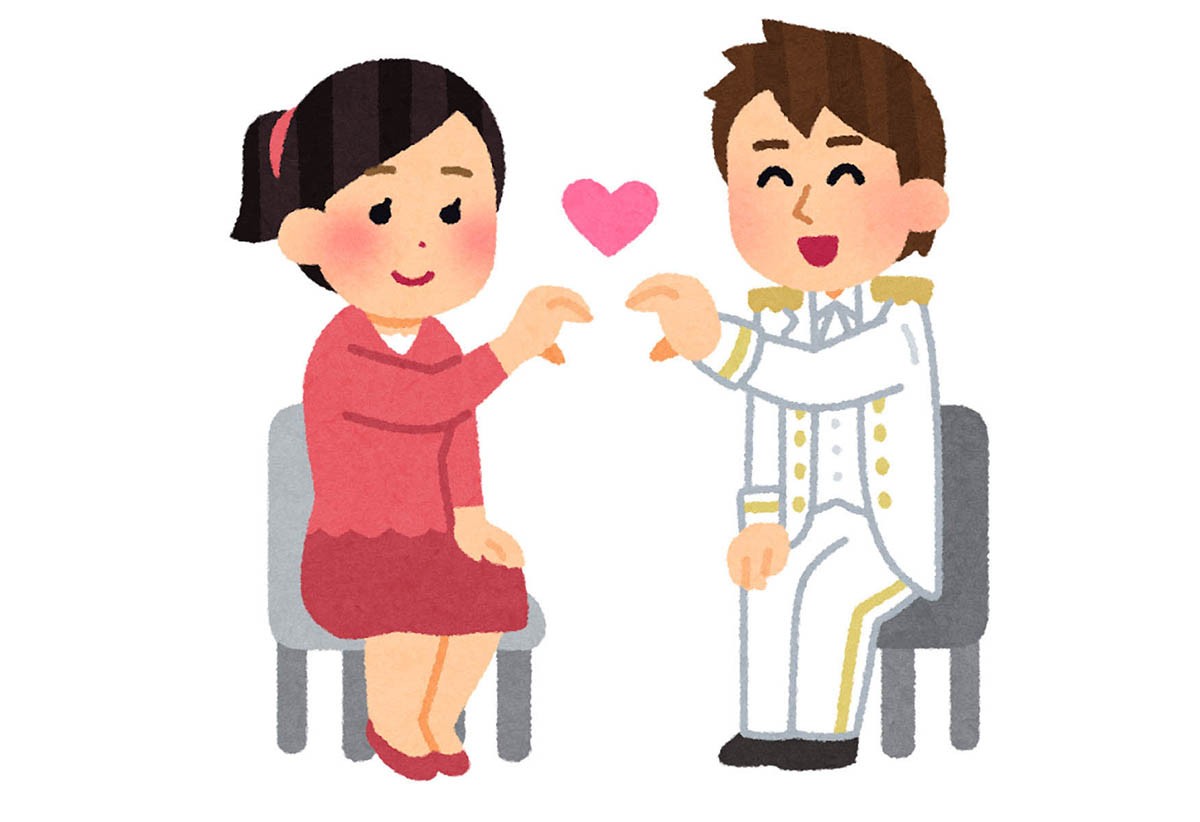
In Japan's idol industry, the idea that idols grow together with their fans is a fundamental concept. Idols aren't expected to be perfect at the time of their debut. In fact, their charm often lies in their imperfections and visible efforts. Fans enjoy watching their growth and progress, finding joy in supporting them along the way. By witnessing each step in the idol’s journey, fans feel as though they are growing together with them. This "charm of being incomplete" becomes a major attraction and helps strengthen the bond between idols and fans.
In addition, it's common in Japan for idols to start building connections with fans even before their official debut. For example, goods might be sold during their trainee period, or they may appear on TV shows to raise their public profile. These pre-debut activities help them gain recognition and fan support in advance, making it easier for their careers to take off smoothly once they debut.
Graduation and New Members
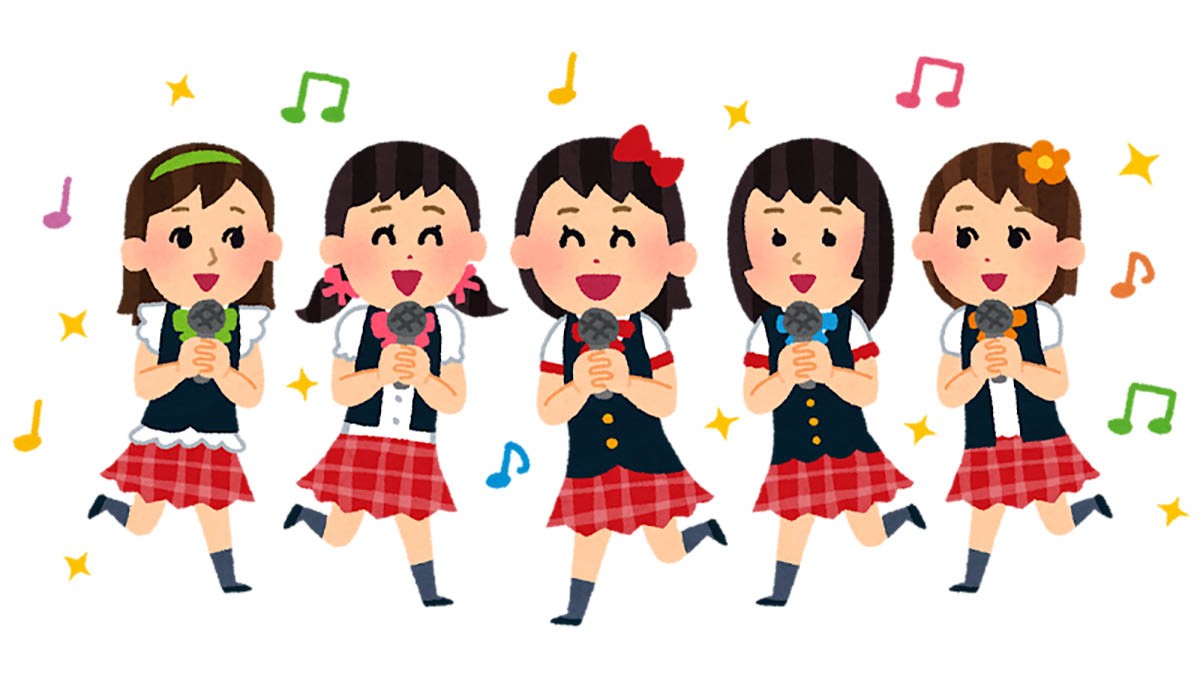
In the Japanese idol world, the "graduation system" refers to when a member leaves a group. However, it's different from simply quitting or breaking up — the term "graduation" carries a more positive nuance. This system is said to have started with the Onyanko Club in the 1980s, was further established by Morning Musume, and is now widely used in the idol industry.
The purpose of the graduation system is to provide a natural transition for members as they move on to the next stage in their careers, while also refreshing the group. The addition of new members brings new appeal to the group and helps keep it dynamic.
Supporting Japanese Idols: Attending Lives, Buying Goods, and More
Attending a Live Show: How Does the Ticketing System Work?

To attend a live performance, you'll first need to secure a ticket. For popular idols, competition can be intense, and just getting a ticket can be a challenge. Japan also has its own unique ticketing systems, which can feel a bit complicated for first-timers. Here’s how the system usually works:
Lottery-Based Sales Are Common
Most idol concerts in Japan use a lottery system for ticket sales. You apply in advance, and only those who win the lottery are allowed to purchase tickets.
Priority is often given to fan club members through early-access lotteries, with general sales opening afterward. General sales are usually on a first-come, first-served basis, and for popular groups, tickets can sell out within minutes of becoming available.
All Seats Are Usually the Same Price
At most idol concerts, ticket prices are the same regardless of where your seat is located. Whether you're in the front row or at the back, the price is the same. This system is designed to ensure that all fans can enjoy the experience equally.
As an exception, some concerts offer VIP areas or tickets with special perks at a different price. Also, some events may separate standing areas and assigned seating.
Seat Numbers Are Randomly Assigned
Even if you win a fan club lottery or buy a ticket quickly during general sales, your seat number is usually assigned at random. This helps avoid the idea that "the earlier you buy, the better your seat," and keeps things fair while reducing the intensity of ticket competition.
Related Articles
- 4 ways to get tickets for live concerts. Is it better to draw early?
- What is standing room? Complete capture of the types of live seats! There is also a difference between reserved seats, seats with open equipment, and annotated seats
- Safe even for beginners! A complete guide from how to buy stage tickets in Japan to theater etiquette
Concert Etiquette
At most idol concerts, photography, video recording, and audio recording are strictly prohibited. However, there are rare exceptions where the organizers allow filming or designate a special "photo time."
While penlights and uchiwa (fan signs) are generally allowed, oversized ones may disturb those around you—so it’s important to be considerate of fellow fans.
🛒 Purchase concert binoculars [Yahoo! Shopping]
Buying CDs, DVDs & Classic Idol Merchandise
Classic Item ①: CDs & DVDs

- Package Design: Album and concert DVD packaging sizes and designs vary, but single CDs almost always come in standard plastic jewel cases.
- Special Bonuses:
Singles: Limited edition versions often include DVDs with music videos or behind-the-scenes footage, along with event tickets or handshake passes. Photo books are rare, and when included, they are usually just a few pages.
Albums & Concert DVDs: Limited editions may come with DVDs or Blu-rays and a slipcase. However, it’s still uncommon for a photo book to be included as a standard feature.
🛒 Purchase idol CDs/DVDs [Yahoo! Shopping]
Classic Item ②: Penlights

A must-have for concerts, penlights are used to cheer on idols by lighting up in each member’s assigned color. The popular "King Blade" models allow fans to switch colors freely, and there's an unspoken etiquette to match colors with songs or members. Most artists release new penlight designs for each tour.
🛒 Penlights Concert 15-Color Lightsticks (2-pack) [Yahoo! Shopping]
Classic Item ③: Uchiwa Fans
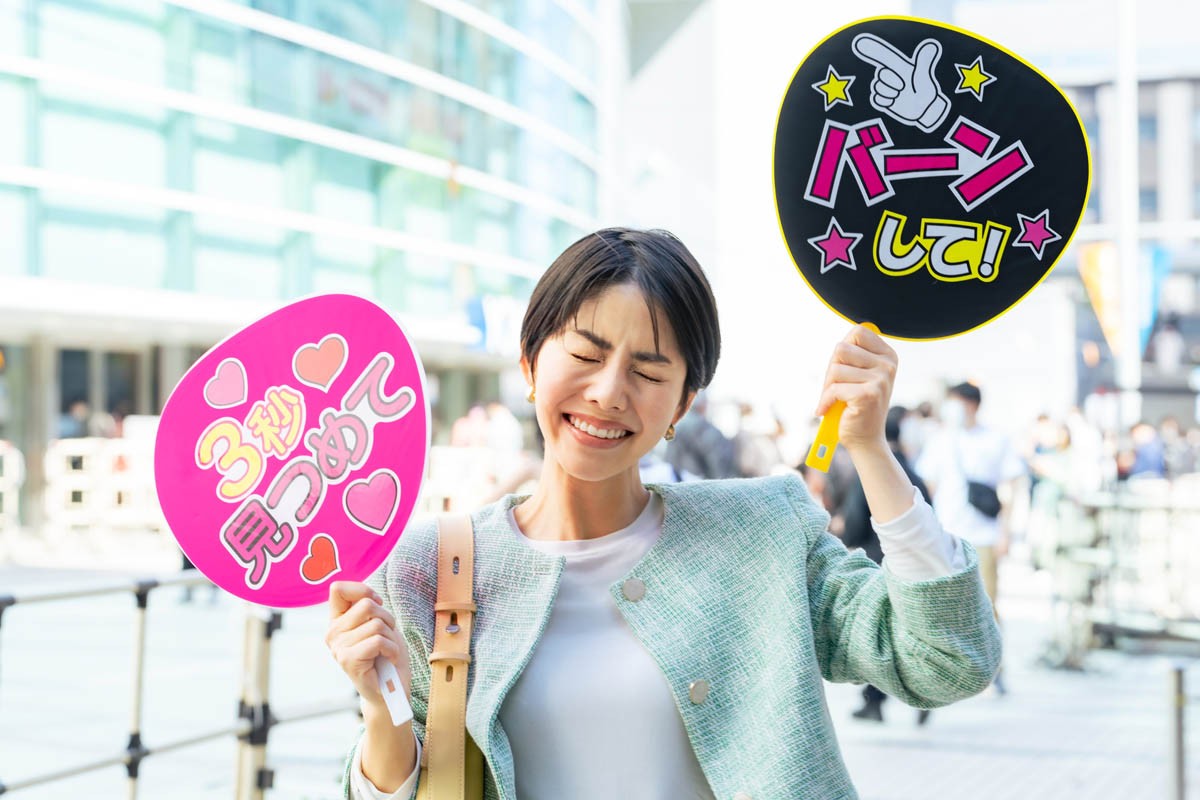
Uchiwa fans are used to show support for your favorite member at concerts and events. Many fans enjoy making their own handmade versions.
🛒 Black Blank Uchiwa Set (5 pcs) for Handmade Idol Support Fans [Yahoo! Shopping]
🛒 Glitter Sheets (10-color set, A4 sticker type) for Jumbo Uchiwa [Yahoo! Shopping]
Classic Item ④: Towels, T-shirts & Hoodies
These items are not only great for cheering during concerts, but are also practical for everyday use.
Unique Idol Goods
- Bromides / Official Photos / Cheki: High-quality photos sold at official stores.
- Acrylic Stands (Akustas): Decorative items featuring full-body prints of idol members on acrylic plates.
🛒 Purchase photo sleeves & albums [Yahoo! Shopping]
🛒 Purchase acrylic stand pouches [Yahoo! Shopping]
What Is “Oshi-katsu”? Understanding Japan’s Idol Fan Culture

"Oshi-katsu" refers to all the activities fans do to support their favorite person or character—their oshi. Whether it’s idols, actors, voice actors, anime characters, or VTubers, the concept of “supporting someone” is deeply ingrained in Japanese fan culture, and all the related actions are referred to as oshi-katsu.
Common Terminology
Oshi (推し): The member you love the most or support.
- 〇〇-tan (担): Short for tantou (担当), meaning the member you’re in charge of supporting.
- Dare-tan? / Dare-oshi? (誰担?/誰推し?): “Who’s your favorite?” or “Who do you support?”
Related Articles
- What is the meaning of "box push", "neighborhood" and "precious"? A complete guide to your favorite conjugations!
- Japan's unique culture!? What is the "push activity" boom that chases idols and singers = "push"?
🚅Book your Shinkansen ticket with NAVITIME Travel! 👉 Click here
😄Make your trip in Japan smoother with NAVITIME eSIM! 👉 Click here
< References>
・What is the difference between major (aboveground) and indie (underground)? List of major labels (Idolpedia)https://idolpedia.tokyo/column/1010/
・Live Idol (Wikipedia)https://ja.wikipedia.org/wiki/%E3%83%A9%E3%82%A4%E3%83%96%E3%82%A2%E3%82%A4%E3%83%89%E3%83%AB
・What is an idol (Oxford English Dictionary)https://www.oed.com/dictionary/idol_n?tab=meaning_and_use&tl=true#917840
・ Detailed explanation of the differences between Japan and Korean idols! (Nayutas)https://nayutas.net/school/hakata/blog/4799/
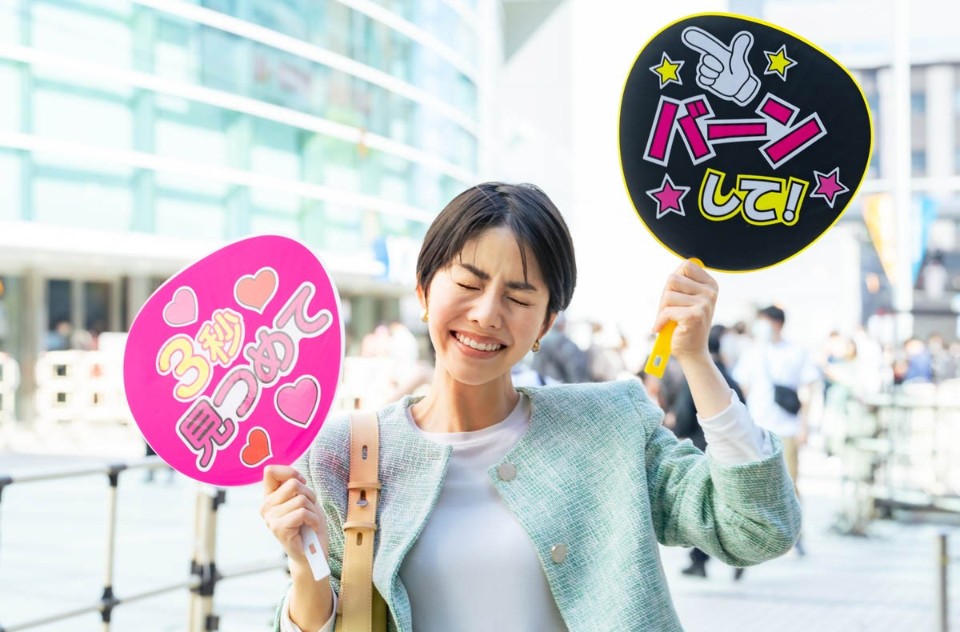


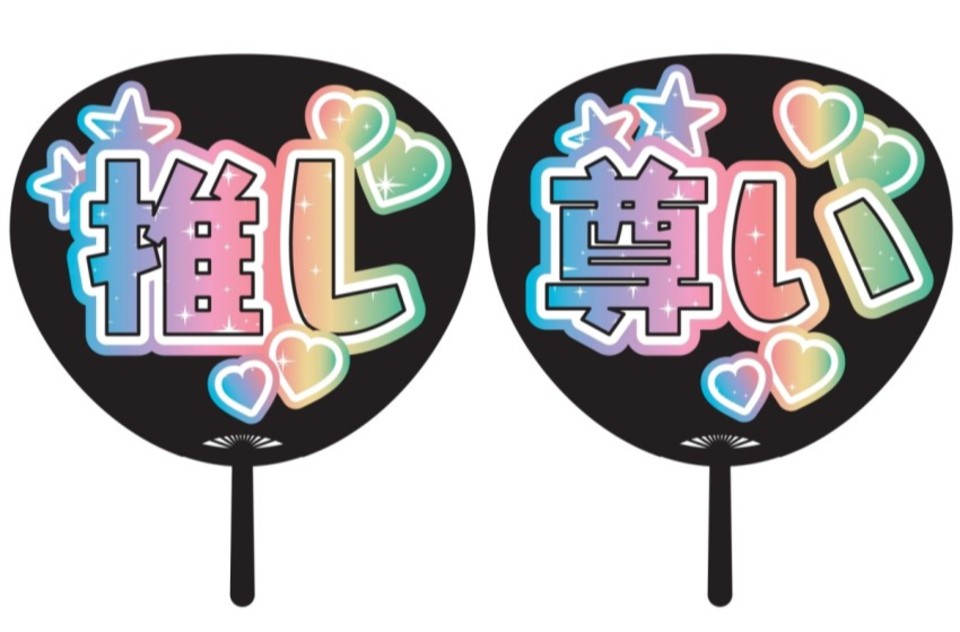
Comments